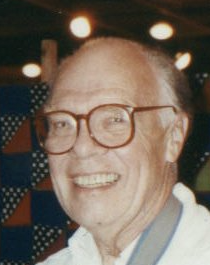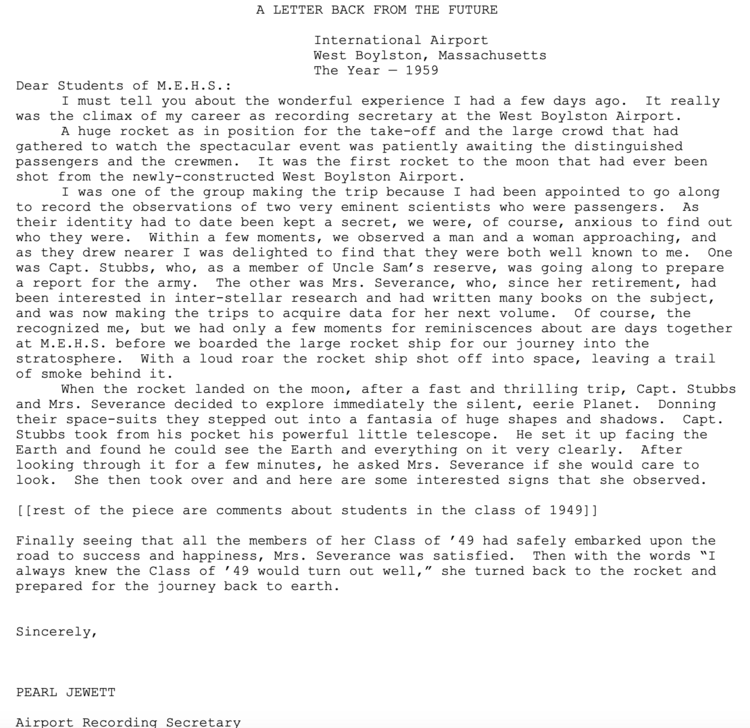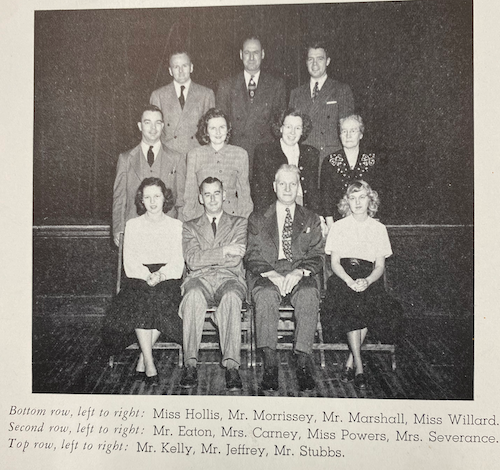Hal Clement
(May 30, 1922 – October 29, 2003)
Hal Clement was a longtime fan, author, and artist, whose real name was Harry Stubbs. He is the only winner of the WSFS Trifecta: He was Worldcon GoH at Chicon V, Worldcon FGoH at Noreascon 3 as a member of the Stranger Club, and NASFiC GoH at CactusCon. He received the SFWA Grandmaster Award.
Clement is best known for his classic hard SF novel Mission of Gravity. He began publishing while an astronomy grad student at Harvard with the story "Proof" in 1942, and went on to publish numerous hard science fiction novels and stories. He was fascinated by both science and science fiction, and many of his stories show an attention to scientific detail along with storytelling.
He was also an astronomical artist, painting under the name of George Richard and focused on realistic depictions of astronomical objects. At conventions, he was a very regular speaker and panelist, frequently on scientific topics and especially on astronomy for which he often painted his own illustrations.
He was active in fandom in the Boston area and was a member of the Stranger Club. Clement was a founding member of NESFA, a Fellow of NESFA, and the only two-time winner of the Skylark Award. He was a regular at conventions around the country, and always sought-after for the program. In 1996, he received the 1946 Best Short Story Retro Hugo for "Uncommon Sense". He was informally adopted as the "Grandfather of NESFA" when many NESFAs produced fanspring in the 1970s and 1980s.
When he was Treasurer of the 1971 Worldcon, Noreascon, his novel Starlight received a nomination for the 1971 Best Novel Hugo. He attempted to decline the nomination so as to be able to continue as Treasurer. (His friends would not let him do it, so they fired him.) He was a fan all his life and said that he used his pro income to finance going to conventions.
In his honor, DucKon gave out an annual Hal Clement Award for Young Adult SF and NESFA sponsors an annual Hal Clement Science Speaker at Boskone.
Personal Life[edit]
After serving as a bomber pilot in WW II, he returned to the Boston area for further schooling at Harvard. (Clement once told friends that he had learned to fly before he learned to drive. After the war he was taking driving lessons in one of the dual control cars where the instructor also has a brake pedal. The car in front stopped abruptly and Harry's natural instinct was to step on the gas and pull back on the wheel to fly over it. Luckily, the instructor stopped the car.)
He adopted his Hal Clement pen name to hide the fact that he was writing and selling SF from his Harvard professors, particularly Robert S. Richardson -- who himself secretly wrote SF under the pen name Philip Latham!
When not writing science fiction, Clement taught high school science, first for two years at Major Edwards High School in West Boylston, MA and then spent the rest of his career at Milton Academy, in Milton, MA. In West Boylston, Clement directed the Junior Class play one year, and is mentioned prominently at the beginning of the 1949 Class "History" - "A Letter From the Future." He was also voted the favorite teacher of the class.
More Reading[edit]
- Hal Clement's Aussiecon 2 Reminiscence.
- His reminiscence of the Stranger Club.
- Entry in The Encyclopedia of Science Fiction.
- Obituary, San Diego Union Tribune.
- FindaGrave entry.
- Some Notes on Xi Bootis [1960]
Awards, Honors and GoHships:
- 1962 -- Little Man Award
- 1965 -- Boskone 1, Lunacon 8
- 1969 -- Skylark Award
- 1970 -- T.A.N.S.T.A.A.F.L. CON, Knight of St. Fantony
- 1971 -- Mondo*Con, Best Novel Hugo nominee
- 1972 -- DeepSouthCon 10, Star Trek Lives!
- 1974 -- Marcon IX
- 1975 -- Balticon 9, Star Trek Lives!
- 1976 -- Alpha Draconis, Fellow of NESFA
- 1977 -- Philcon 1976 (really), Philcon 1977
- 1978 -- Maplecon 1
- 1979 -- Future Party '79
- 1980 -- Chattacon V, Penulticon 3
- 1981 -- LASTCon I
- 1982 -- URCON IV, Unicon 82, Marcon XVII, Skycon 2, Hexacon 5
- 1983 -- StellarCon VIII, Darkover Grand Council 6
- 1984 -- Sunuvacon 1, I-Con III
- 1985 -- Genericon I
- 1986 -- NJAC 2, Genericon II
- 1987 -- MidSouthCon 6, CactusCon, Hexacon 9
- 1988 -- VCON 16, Genericon IV
- 1989 -- Marcon XXIV, Genericon V, Raymond Z. Gallun Award, Noreascon 3
- 1990 -- Tropicon IX, StellarCon XV, State of ConFusion, Life, the Universe, & Everything 8
- 1991 -- Lunacon 34, OKon 13, Genericon VII, Chicon V
- 1992 -- Forry Award
- 1994 -- DucKon III, Rising Star 3
- 1995 -- Balticon 29, Contradiction 15
- 1996 -- 1946 Best Short Story Retro Hugo for "Uncommon Sense"
- 1997 -- First Fandom Hall of Fame, Skylark Award
- 1998 -- Toastmaster at Rivercon XXIII, Science Fiction Hall of Fame
- 1999 -- Albacon 1999, ArmadilloCon 21
- 2000 -- SFWA Grandmaster Award
- 2001 -- Balticon 35, EerieCon 3
- 2002 -- Confluence 14
- 2003 -- Readercon 15
Mission of Gravity[edit]
Mission of Gravity, an SF novel by Clement, was serialized in Astounding Science Fiction in April–July 1953. Its first hardcover book publication was in 1954, and it was first published as a paperback book in 1958.
It is often cited as one of the best pieces of hard science fiction ever written.
| Person | 1922—2003 |
| This is a biography page. Please extend it by adding more information about the person, such as fanzines and apazines published, awards, clubs, conventions worked on, GoHships, impact on fandom, external links, anecdotes, etc. See Standards for People and The Naming of Names. |


